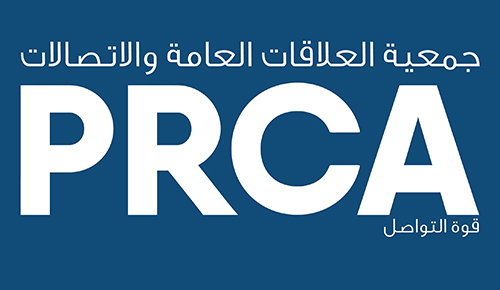PRCA MENA exists to uphold standards in the public relations and communications industry. Therefore all members are automatically subscribed to the Code of Conduct, Professional Charter, and must also uphold the rules and standards set out.
1 Conduct in relation to the PRCA MENA Professional Charter
A PRCA MENA member shall:
1.1 Have a positive duty to observe the highest standards in the practice of Public Relations and Communications. Furthermore a member has the responsibility at all times to deal fairly and honestly with fellow members and professionals, the Public Relations and Communications profession, other professions, suppliers, intermediaries, the media of communication, colleagues, and above all else the public.
1.2 Be expected to be adhere to, understand, and observe this PRCA MENA Code, any amendment to it, and any other codes which shall be incorporated into this code, and to remain up-to-date with the content and recommendations of any guidance or practice papers issued by the Association (PRCA MENA), and shall have a duty to conform to good practice as expressed in such guidance or practice papers.
1.3 Uphold this code and co-operate with fellow members in so doing by enforcing decisions on any matter arising from its application. A member that knowingly causes or permits a colleague to act in a manner inconsistent with this code is complicit to such action and shall themselves be deemed to be in breach of it.
A PRCA MENA member shall not:
1.4 Engage in any practice nor be seen to conduct themselves in any manner detrimental to the reputation of the Association (PRCA MENA) or the reputation and interests of the Public Relations and Communications profession in the region.
2 Conduct towards the Public, the Media, and other Professionals
A PRCA MENA member shall:
2.1 Conduct their professional activities with proper regard to the public interest.
2.2 Have a positive duty at all times to respect the truth and shall not disseminate false or misleading information knowingly or recklessly, and to use proper care to avoid doing so inadvertently.
2.3 Have a duty to ensure that the actual interest of any organisation with which they may be professionally concerned is adequately declared.
2.4 When working in association with other professionals, identify and respect the codes of these professions and shall not knowingly be party to any breach of such codes.
2.5 Honour confidences received or given in the course of professional activity.
2.6 Neither propose nor undertake any action which would constitute an improper influence on organs of government, or on legislation, or on the media of communications.
2.7 Neither offer nor give any inducement to persons holding public office or members of any statutory body or organisation who are not directors, executives, or retained consultants, with intent to further the interests of the organisation if such action is inconsistent with the public interest.
3 Conduct towards Colleagues
A PRCA MENA member shall:
3.1 Adhere to the highest standards of accuracy and truth, avoiding extravagant claims or unfair comparisons and giving credit for ideas and words borrowed from others.
A PRCA MENA member shall not:
3.2 Intentionally damage the professional reputation or practice of another member.
4 Discriminatory Conduct
A PRCA MENA member is required to take all reasonable care that professional duties are conducted without causing offence on the grounds of gender, race, religion, disability, or any other form of discrimination or unacceptable reference.
PRCA MENA Arbitration and Disciplinary Procedures
1 Introduction
1 The purpose of the PRCA MENA Arbitration and Disciplinary Procedures is to have a mechanism whereby the PRCA MENA Professional Charter is seen to be capable of enforcement.
2 It also provides a mechanism by which complaints under the PRCA MENA Professional Charter against PRCA MENA members may be processed effectively and fairly.
3 Additionally it allows parties in disagreement to submit their cases by mutual agreement to arbitration and settlement.
2 Complaints
4 The following complaints will be covered by this procedure:
- An apparent breach of the PRCA MENA Professional Charter by a member.
- Where there are reasonable grounds to believe that a member has brought discredit upon the profession or the Association (PRCA MENA).
- Where one member considers they have cause to complain about the professional behaviour of a fellow member.
- Where having regard to both the letter and the spirit of the PRCA MENA Professional Charter, a member of the public believes cause for complaint against a member exists.
- Where the PRCA Director General believes cause for complaint against a member exists.
5 Stages in the procedure are specified and are designed to ensure that any complaint is dealt with as speedily as possible whilst giving all parties concerned adequate time to respond to each stage.
6 A complaint may be originated by any individual, whether a member of the Association (PRCA MENA) or not, or by any organisation, or by any Committee of the Board, by the Board itself or by the PRCA Director General.
7 It shall be the duty of the Professional Practices Committee promptly to investigate any complaint properly brought before them against a member.
8 The Committee will recommend to the Board sanctions on the member concerned where serious breaches of the PRCA MENA Professional Charter have been proven. Such sanctions may extend to suspension or termination of membership coupled with a published censure. The Committee is empowered to impose sanctions (short of suspension or termination) on the member concerned where minor breaches of the PRCA MENA Professional Charter have been proven, including, but not necessarily limited to warnings, admonishments or reprimands which may be published.
9 Matters that are currently the subject of a legal action will not be covered by the Committee. The Committee should advise all parties concerned of this as soon as possible.
3 Definitions
10 “Board” – The duly-elected directors of the PRCA.
“Committee” – The Professional Practices Committee of the Public Relations and Communications Association Limited (PRCA).
“Complainant – The person, organisation, PRCA Director General or Association Committee making the complaint.
“Defendant” – The PRCA MENA member against whom the complaint is being made.
4 Procedure and Timings
11 On receipt of a formal complaint the Secretary of the Association shall if necessary correspond with the complainant in order to clarify any matters of uncertainty and to identify the specific clause or clauses of the PRCA MENA Professional Charter which relate to the complaint. The Secretary must inform the complainant in writing of the Committee’s disciplinary procedure and in particular explain that the defendant will be notified of the complaint in order he may exercise the right to reply. The Secretary shall then send details of the complaint to the defendant and invite him to submit written observations within five working days which will be placed before the Professional Practices Committee together with the original complaint.
12 Any complaint must be placed before the Committee in session as soon as possible but no longer than 20 working days after the complaint was received except in exceptional circumstances. If the Committee consider that there is no prima facie case for invoking disciplinary procedure the respective parties should be notified accordingly.
13 Each party shall supply within 10 working days to the Committee, and to the other party, a written summary of their case, with copies of any relevant documents. If both parties agree to the procedure, and sign their respective summaries and documents as fairly representing the facts, then the Committee may proceed to give their decision upon the evidence contained in the documents. Otherwise the Committee shall fix a time and place for the hearing of both parties and of any witness each party may consider necessary.
14 In the event of a hearing both parties shall be entitled to make oral submissions to the Committee either personally or through a representative. The Committee may invite further representations from either or both parties. Any such representations shall be made within five working days of the Committee meeting.
15 Any party may by notice in writing (at any time no later than five working days before the day fixed for the hearing) call upon any other party to admit any document and, if such other party desires to challenge the authenticity of the document, he shall within five working days after service of such notice, give notice that he does not admit the document and requires that it be proved at the hearing.
16 The proceedings of the Committee shall be held in private unless otherwise agreed by all parties.
17 After consideration of the case, the Committee shall decide whether there has been a breach of the PRCA MENA Professional Charter and, if so, what sanctions should be applied against the defendant. Such decisions shall be made by a majority vote at the Committee Meeting where the matter is considered. The Committee’s decision except in the case of a resolution of suspension or termination shall be final and binding on all concerned (subject to the member’s right of appeal). The Committee shall give their decision in writing.
18 If the Committee decide that the correct sanction is one of suspension or termination it shall recommend this decision to the Board who shall consider the report and recommendations of the Committee and shall approve, amend, or overrule the recommendation of the Committee and shall give its judgement in writing.
19 Where suspension or termination of membership is the outcome, then following appeal the terms of censure will always be published. If the decision is to warn, admonish, or reprimand then an additional vote must be taken as to whether or not following appeal the terms of the censure will be published.
20 Any appeal by a member against a disciplinary decision must be lodged in writing to the Board through the Secretary at the Association’s registered office within five working days of the Committee’s or Board’s decision being notified to the defendant. Such appeal shall be considered by the Board together with the report of the Professional Practices Committee and the Board shall approve, amend, or overrule the decision which was the subject of the appeal.
21 In the unlikely event that the Committee are unable to settle a grievance or there is a conflict of interest within the Committee, the Chairman shall nominate a Subcommittee of three who are not associated with the parties concerned, and who shall have the power to hear both parties and decide between them.
22 The Committee may appoint legally qualified assessors and in appropriate cases instruct one or more to sit and act as non-voting members of the Committee to ensure that the proceedings are conducted in accordance with the principles of natural justice and the law. The Committee shall be bound by the legal rules of evidence.
5 Arbitration
23 By mutual written consent of both parties a Subcommittee of the Professional Practices Committee may arbitrate and determine settlement of disputes either between fellow members or between non-members and members of the PRCA MENA. The above rules of procedure apply equally to the handling of complaints and to requests for arbitration.


